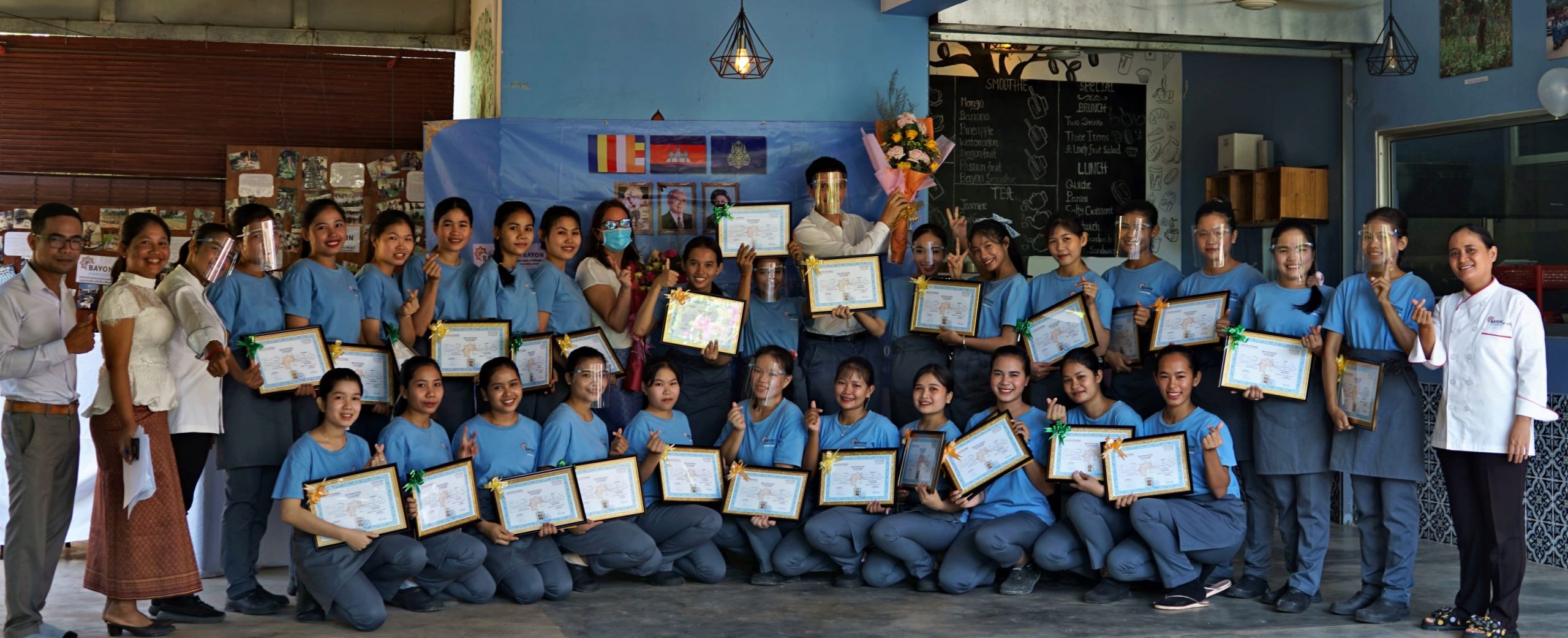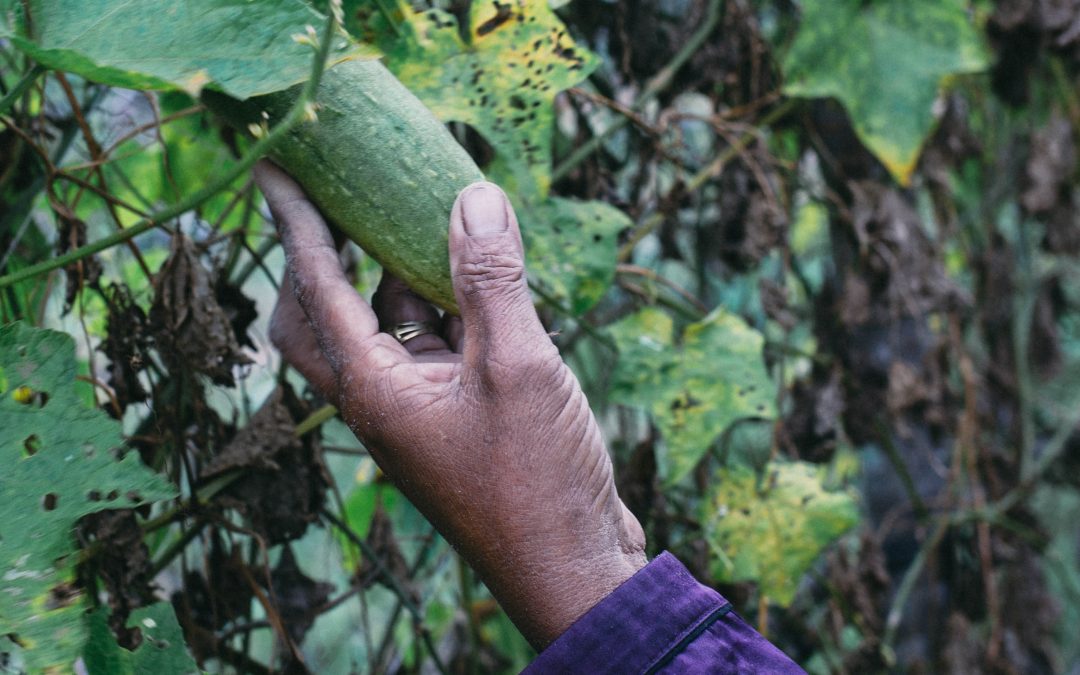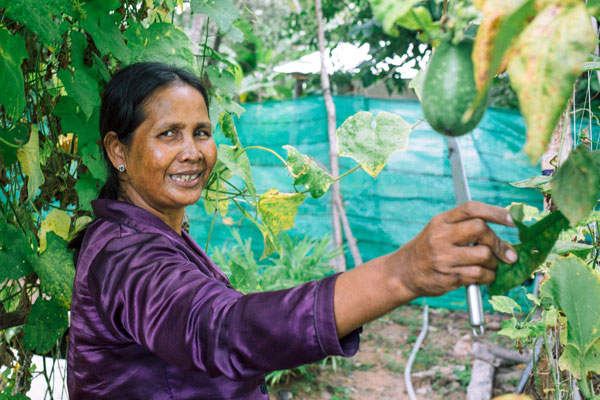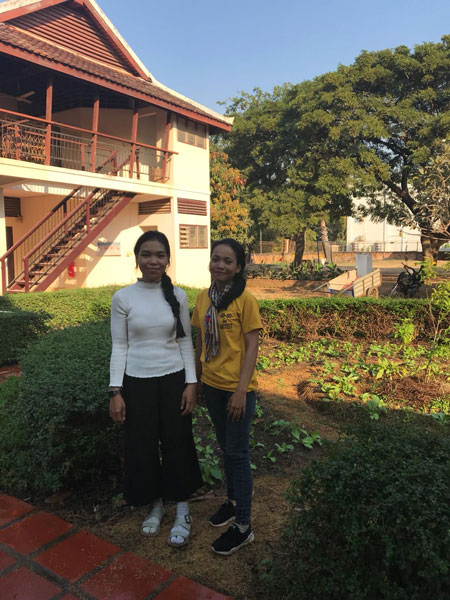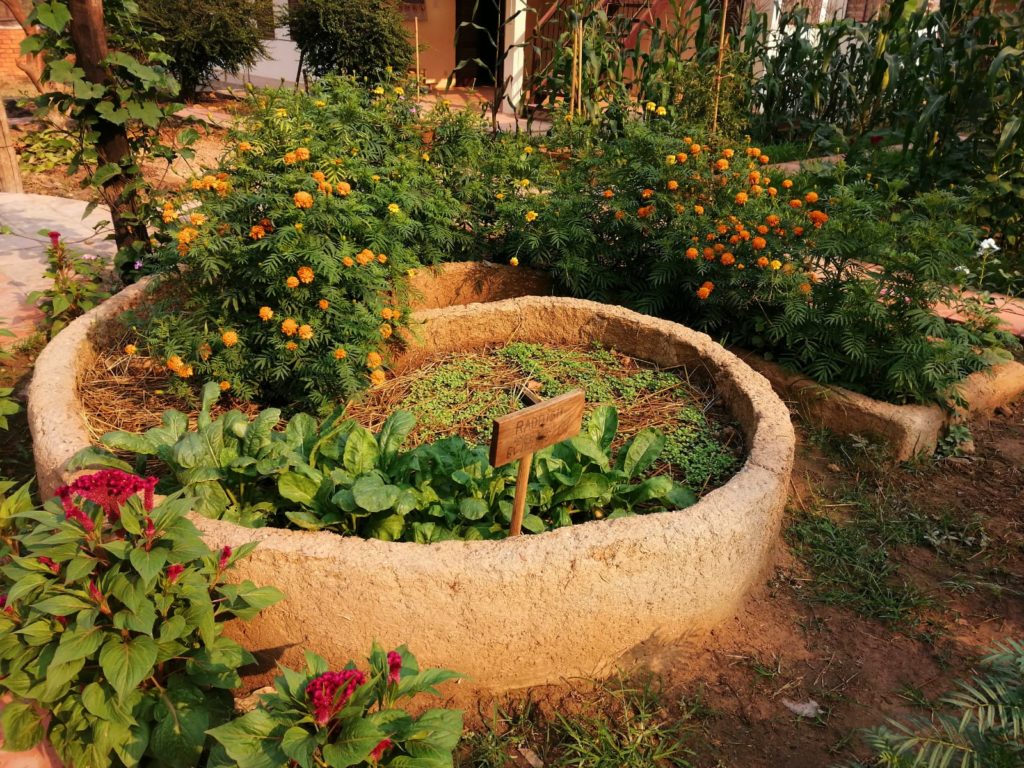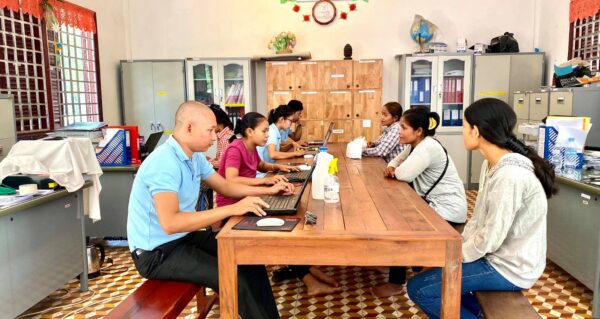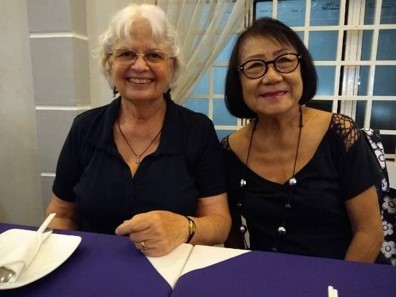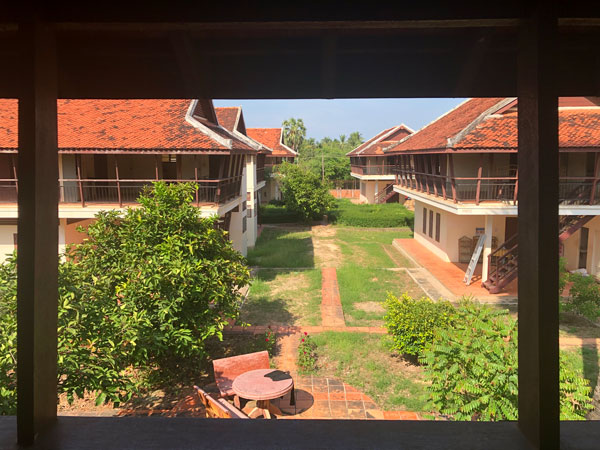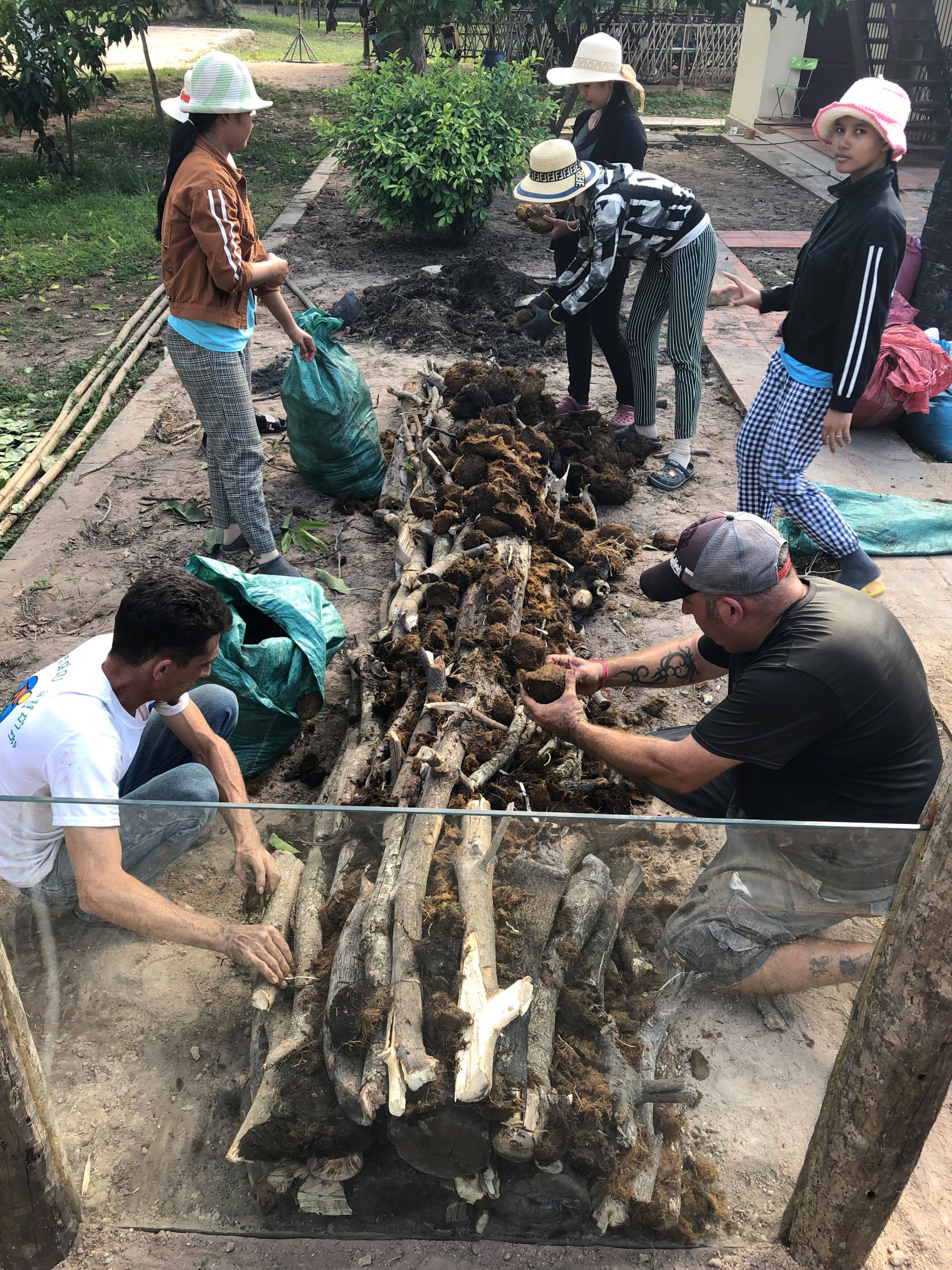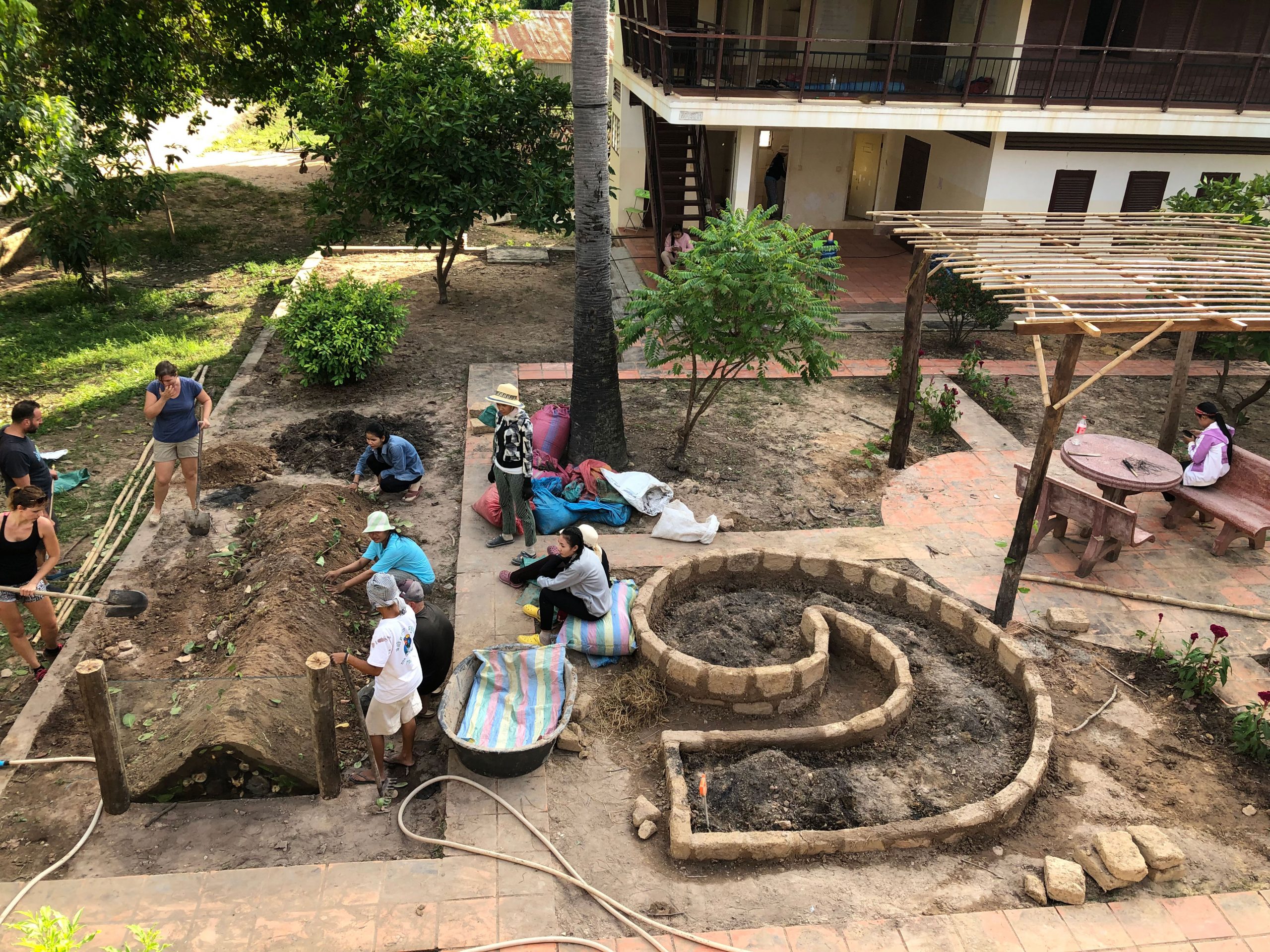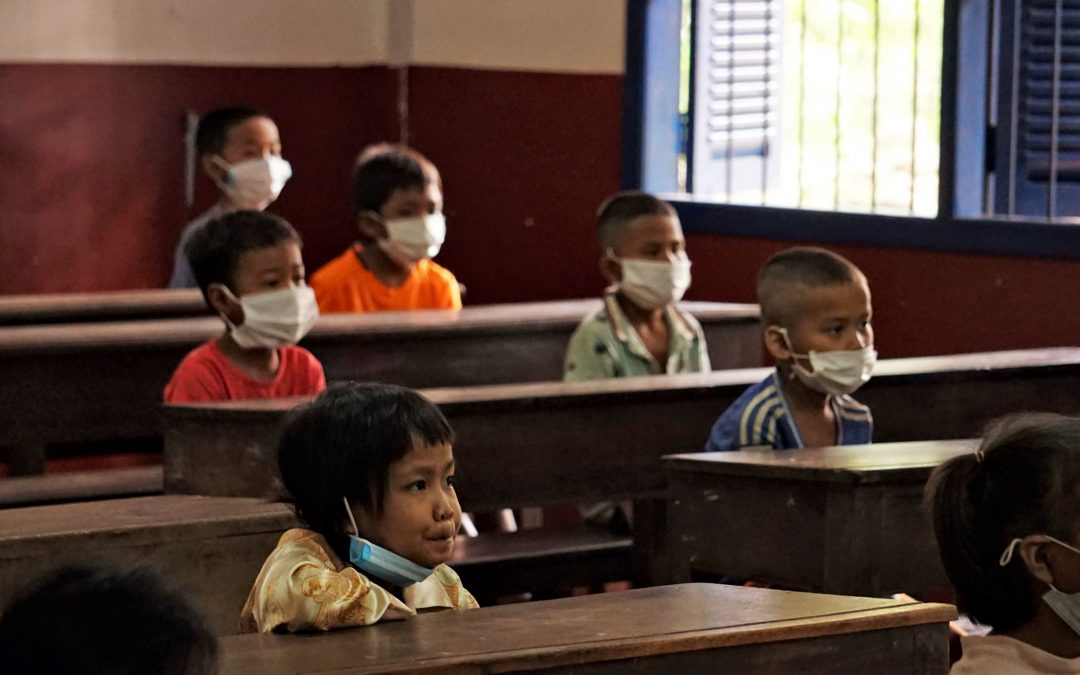
A year like no other at the Bayon School
As the year 2020 comes to an end, so does the school year for our primary and bakery/pastry schools. It has been a complicated 12 months, during which our students and teams have been seriously challenged. We have had to adapt, reinvent ourselves and act quickly in the face of a crisis, the impact of which no one could have foreseen. Even though the situation is far from being “normal” again, we have come out of it stronger, enriched and eager to keep innovating in order to provide a better education for those in need.
Let’s look back at the actions and successes of our schools
In September 2019, we welcome our 6th class of students at the Pastry School with 26 young girls; a number, which has been constantly rising since the opening of the school. The new laboratory intended to free up space and reinforce our bakery teaching is almost finished and we are delighted to be able to start the new year in optimal conditions to train more and better. In 2018/2019, we manage to self-finance almost 55% of the school’s costs, thanks to the Coffee Shop’s income, and we are doing our utmost to welcome tourists and visitors to do, if not just as well, even better. The hygiene teaching program is reviewed with a food safety specialist and English classes are reinforced with the launch of a partnership with the Australian Center for English.
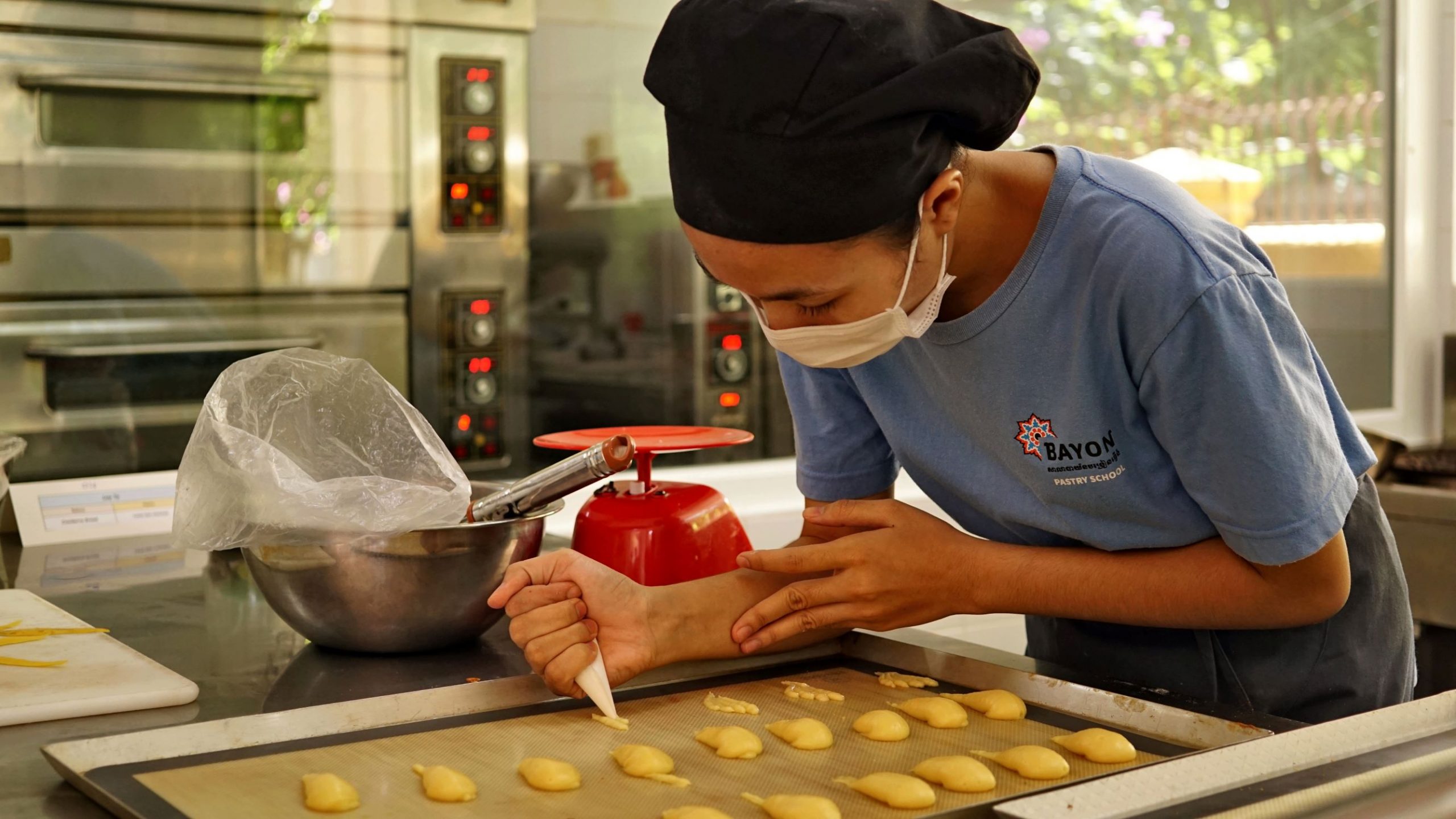
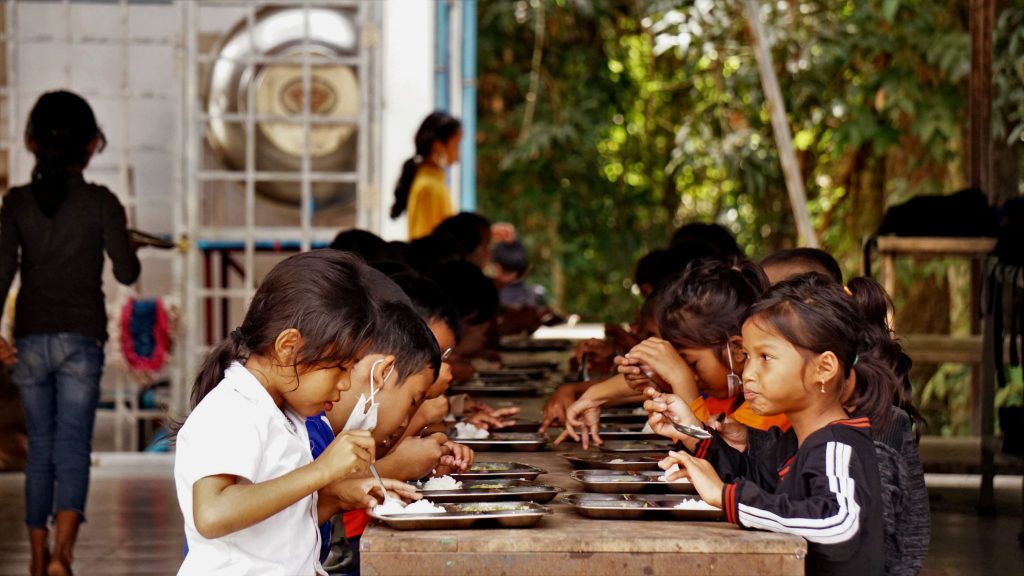
In October 2019, 232 students are enrolled in the Bayon primary school and 120 middle and high school students continue their studies, whilst being accompanied on a monthly basis by our teams with educational and social follow-up. The primary-aged children discover the new sit-down breakfast with a hot meal from 6:45 a.m. The art-culture-sport program is reinforced with traditional puppet classes and one and a half hours a week are dedicated to sports. In February, 30 pupils participate in the inter-school sports championship and win 2 medals; a very proud moment for all involved! Support classes for pupils with difficulties continue and the project for a building dedicated to small group teaching is on the road to completion.
In November 2019, the number of “farmer” families in the Bayon increases to 11, as three new families join the vegetable garden project. This project allows these women farmers to earn additional income and 90% of the vegetables bought for the canteen are now organic.
Cooperation with the association Pour un Sourire d’Enfant (For a Child’s Smile) kicks off and together we launch a major collaborative project to create a field for experimentation in agroecology. Projects such as planting fruit trees and medicinal plants, building above-ground cultivation tables, creating compost and installing an irrigation system mean that this land will become the home to our future agroecology school with its first 10 students in January 2021. At the same time, and in partnership with the NGO Vivre de sa Terre, the 10-month training of the future teachers starts and the team fine-tunes the curriculum.
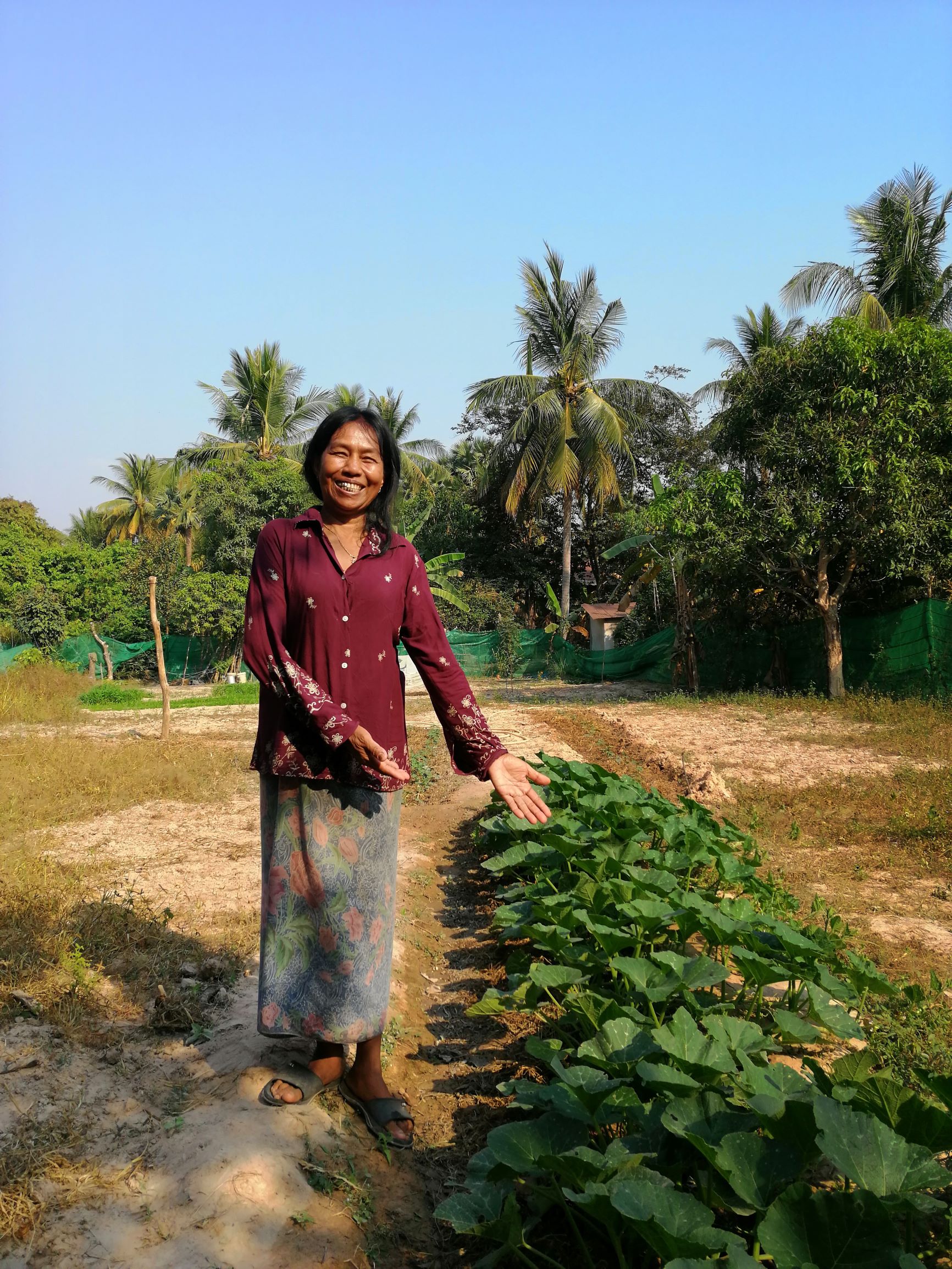
From December 2019, the families receive a visit from our medical and social teams to assess their sanitary conditions and medical needs. 156 families are interviewed and a major study is conducted to define an action plan to be implemented with our families.
Adapting to the Covid
On March 9, 2020, all schools in the country close their doors and, by the end of March, the last repatriation planes send the last remaining tourists back home. Our students return to their families and our younger pupils are kept away from the school. Disheartened at the beginning, we have to react quickly to help our families face this crisis, not knowing how long it will last.
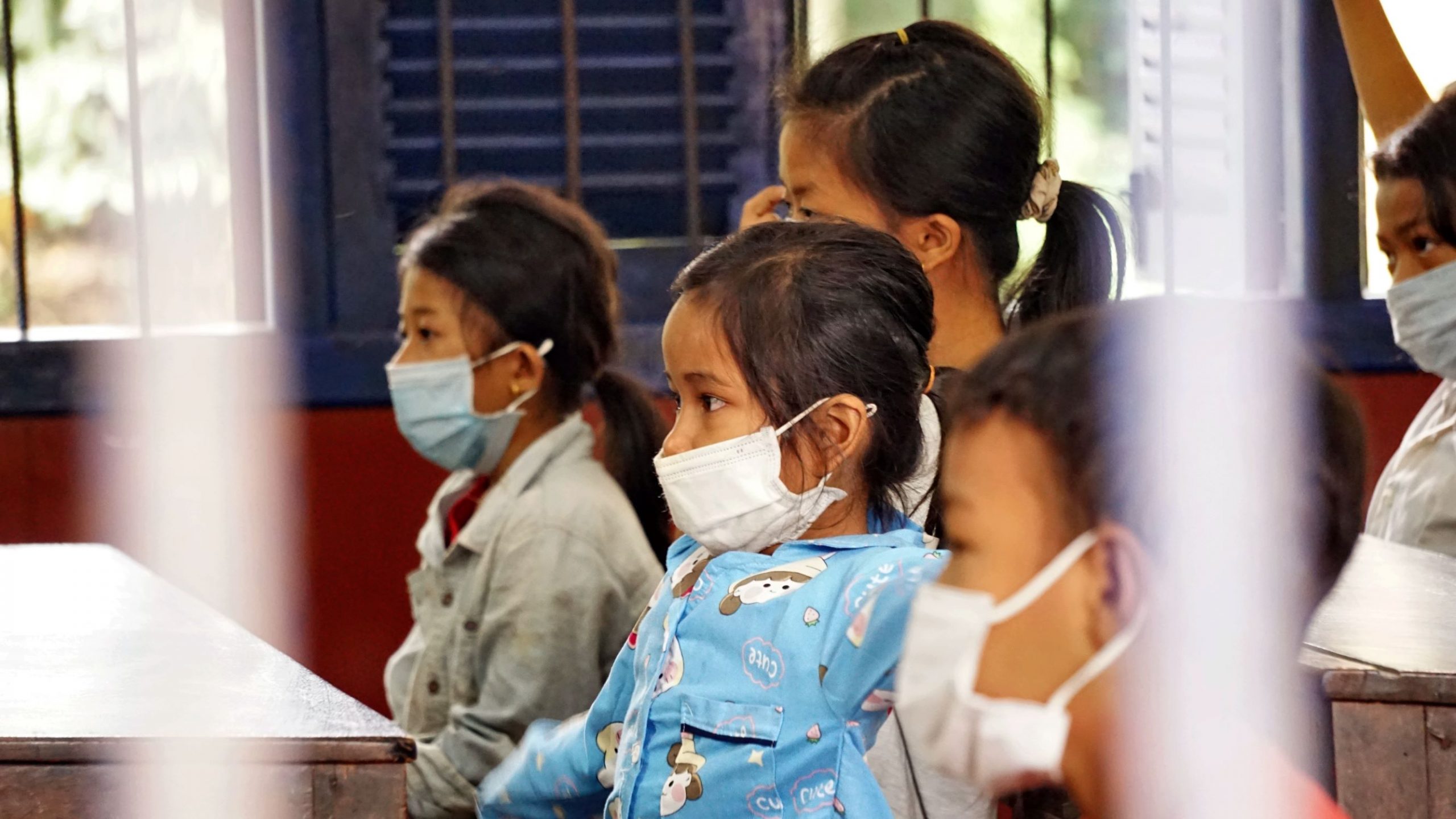
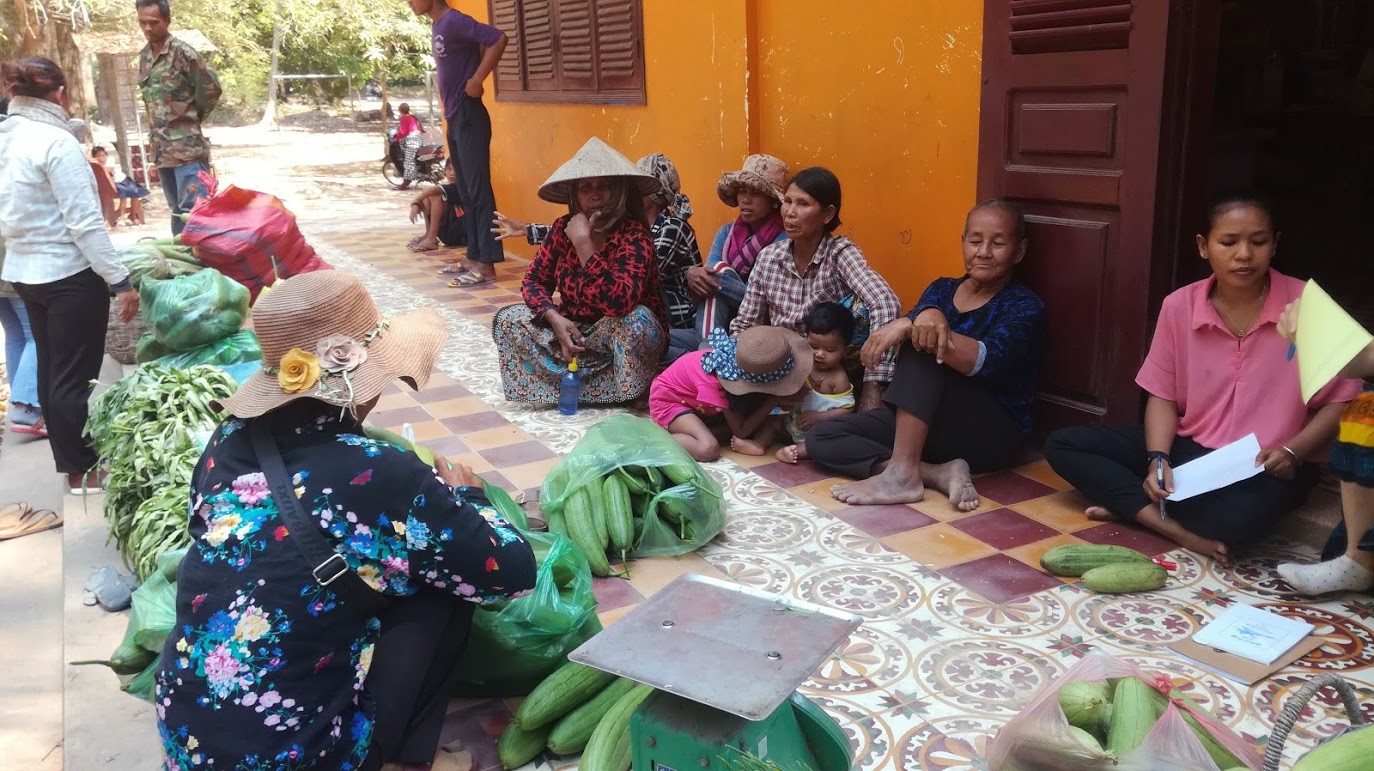
All the vegetables produced by the farmers are bought by the NGO and distributed every week free of charge to the families of our pupils, who are no longer being fed morning and night at the canteen. Our social team visits the families at home to analyze the impact of COVID on them: those identified as being in great difficulty receive rice. Distance-learning and very small group-teaching starts in April and in July we receive a donation of smartphones to improve access to online courses for our pastry students. Our teams put in motion the different projects: redesigning the website, painting the walls of the Coffee Shop, studying the situation of our alumni pastry school students, launching a database to regroup all the social, medical and pedagogical information of the students, training for the farmers and precise monitoring of the quantities of vegetables, which just keep on increasing.
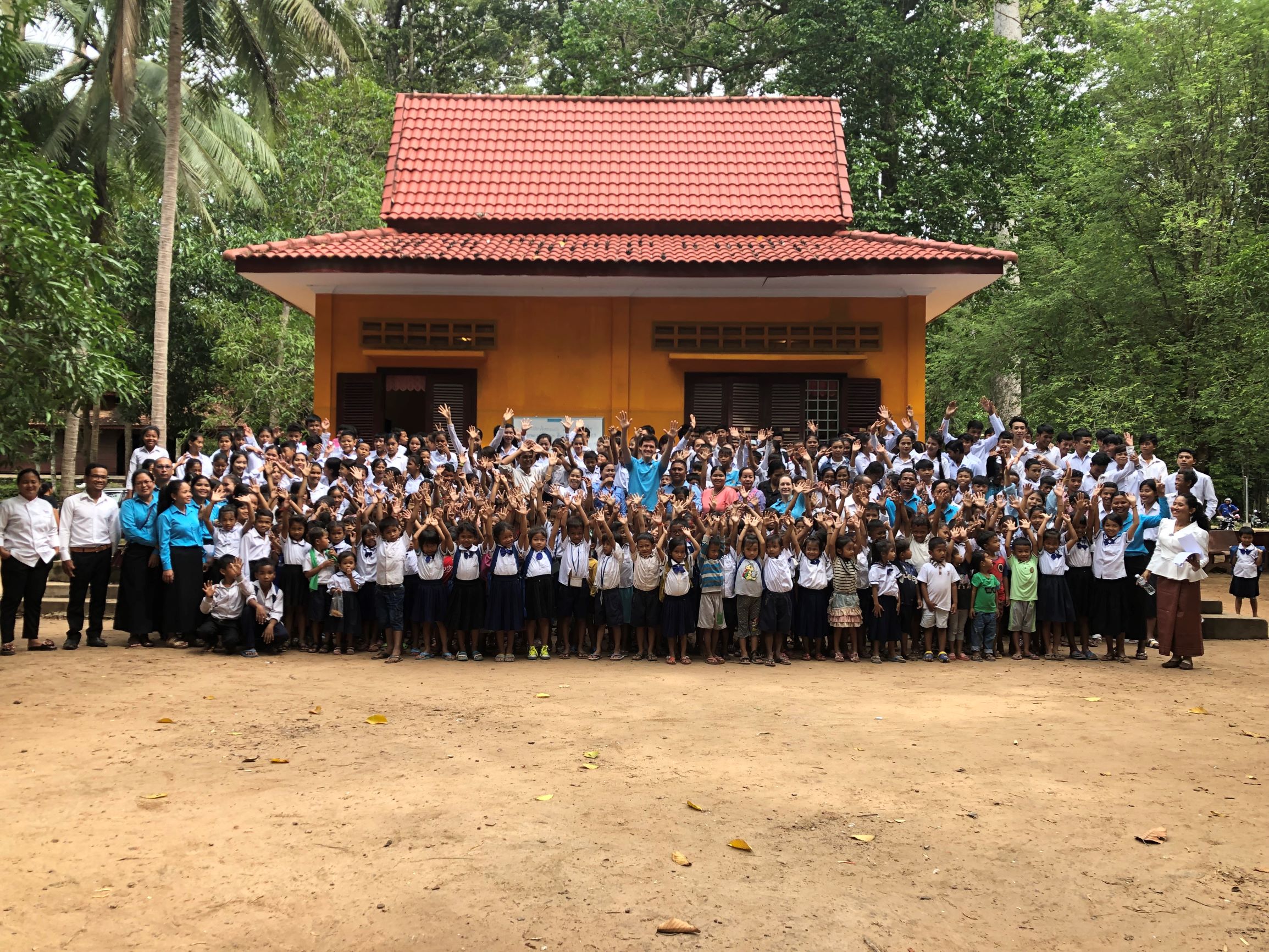
Bounce back and move forward
All of these actions have made it possible to accompany our families and maintain a pedagogical follow-up, avoiding, as a result, too much delay with the school programs. Some families returned temporarily to their home villages to work the land as they had lost their jobs. The Cambodian people are proving to be resilient and strong in the face of this crisis and we hope that economic and tourist activity can resume as soon as possible to recreate jobs for those who really need them.
